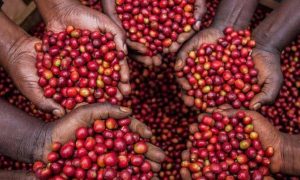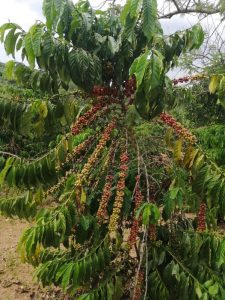
#OutToLunch: Resilient coffee farmers will make money regardless of UCDA fate
By Denis Jjuuko Whether on coffee tables, bar tables, parliamentary tables, or presidential tables, the talk has been about coffee following the contentious coffee bill that seeks to amend the National Coffee Act 2021. The main tenet in the bill is the proposed dissolution of the Uganda Coffee Development Authority (UCDA). Depending on who you listen to, UCDA is either angelic, demonic or a combination of both. Maybe the debate wouldn’t even have reached its current crescendo had the Speaker of Parliament not caught on a live mic urging her colleagues to do something about the Baganda. Whatever, she meant, the Baganda seemed to be the target. You see, 50% of the coffee grown in Uganda is from Buganda, a source of livelihoods for almost every household in the region. Many kids in Buganda go to school because of the incomes derived from coffee by their parents and guardians. Coffee and of recent, enjoys a demigod status among the people of Buganda. It hasn’t been like that though for the last few years. Many people in Buganda had given up on growing coffee until about 2016 when the kingdom started its famous Emmwanyi Terimba (coffee is profitable) campaign reminding people of the good old days of Mmwanyi Zabaala (another variant of coffee is profitable). Mmwanyi Zabaala was usually a reference to the powerful Bantam motorcycles that people in areas like Masaka massively bought as a result of profits from coffee especially in the 1960s, 1970s and 1980s. Farming is usually not for the fainthearted and prices can significantly fluctuate especially for a product that is largely exported. Prices are many times determined on global markets. Weather changes in Brazil, Colombia or Vietnam, for example, can have a significant impact on Uganda’s coffee. And domestic demands in those larger producer markets can also have impact. Speculators on the futures markets in the global financial capitals can also have an impact. But also, people can simply give up on something by losing hope. Leadership is usually required to restore hope, reminding people that those who “lose a loved one, don’t sleep by the graveside.” Once people are inspired to realize that not every light at the end of the tunnel is of an oncoming train, they could easily wake up and do something for themselves. That is what happened in Buganda circa 2016. With inspiration from the leadership in Buganda, people in the region started growing coffee again. Seeing the uptake in the crop, UCDA sought for a partnership to work together. The end result had been increased exports and increased incomes for the people in the region and indeed elsewhere. A coffee tree lasts about 45 years. So those who had abandoned their trees didn’t all have to plant new ones. Many just did stumping, allowing the coffee to sprout and flourish again. Others planted new ones. Within 2-4 years, they were making money again. I remember a trip to Bukomansimbi about four years ago where I met a man who had been a boda boda rider in Kampala and had decided to return to the village. He had revived his coffee garden and had managed to build himself a decent house and rentals somewhere in Kyengera, just outside Kampala. He regrated the years he had spent in Kampala riding a boda boda and before it, working as a taxi conductor. That was well before the average coffee prices of around Shs13,000 per a kilo of fair average quality. With the prices being offered today, there is real income in the pockets of ordinary Ugandans. And not just ordinary Ugandans, the country’s is benefiting as well as income from coffee exports are topping USD210m per a month. Regardless of what the government of Uganda does, coffee will remain a highly demanded crop across the world. The biggest consumers of coffee in the world don’t grow it and they are not about to give it up. They will continue to demand for it. The traders and the entire value chain is not about to give up coffee. Since the demand is assured, those who are growing coffee should not return to the previous years of feeling pity for themselves. They should instead increase the acreage those who can, look after their coffee trees well and do whatever is necessary to increase production of quality beans. Those that won’t give up, regardless of the prices or scrapping of UCDA would still be better than a farmer that don’t have anything to sell. The writer is a communication and visibility consultant. djjuuko@gmail.com

